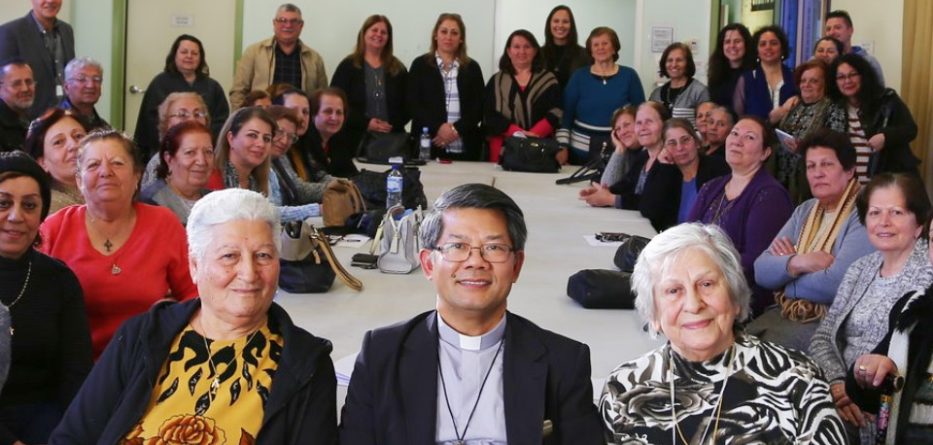26 September is the Holy See’s World Day of Migrants and Refugees (also known as Migrant and Refugee Sunday)
For Victorians, World Day for Migrants and Refugees, the last Sunday of September, is traditionally held the day after the AFL Grand Final. For some dedicated supporters, it will be a day of joy; for others of desolation. This COVID year, it will also be a time of uncertainty about whether it will be held on the usual Saturday.
The mixed emotions of the weekend and its overshadowing by uncertainty make it a suitable day for remembering migrants and refugees. In the Australian Catholic Church, it prompts gratitude and joy for the gift that people from different nations and their children have been for both church and nation. We remember the Irish immigrants who were the heart of so many communities, whose churches and schools were built with the pennies of the poor. We remember also the early European and Middle Eastern immigrants of early days. We recall, too, the people of so many European nations who came from a war-devastated Europe after the Second World War – English, Dutch, Polish, Italian and others, and the later refugees and migrants from Vietnam, Latin America, Lebanon, the Baltic nations, India and Africa. Both the Australian community and the Church have been so blessed by the contribution they have made. Migration has shaped and reshaped the face of Australia and has reminded us that we all have trespassed on a land first cared for by Indigenous Australians.
If we remember the gift that the lives of migrants and refugees have brought us, we also remember the pain and dislocation that was part of their experience. For them, it meant a leaving of home, of familiar place, language or dialect, friendships and landscape, and a making of new connections. For people who came later in life, it may have meant that different dress, difficulty in speaking English and inability to comprehend new customs and culture made a distance between them and Australians of other backgrounds. For children, it often meant a difficult balance of living in two cultures and being excluded by their peers because of their difference. The lives of migrants and refugees were often marked by difficulty and sacrifice, which we remember and celebrate today.
For people who came as refugees, the contrast between joy and pain, acceptance and rejection, and generosity and meanness has been particularly marked. They met two sides of Australia, one hospitable and one vicious. For many years, Australia was generous in receiving and supporting refugees on their arrival in Australia and in helping them to be welcomed members of the Australian community. They have contributed enormously to Australian culture and prosperity.
More recently, however, Australia’s treatment of people who fled from persecution and arrived by sea has become increasingly cruel. They were not treated as persons like us worthy of respect, but like parcels that can be allowed to be moved from place to place, discarded, never delivered, never allowed to live ordinary lives and never to be accepted as members of the Australian community. As we remember them on World Day of Migrants and Refugees, it becomes a day of shame, of solidarity with people whose humanity has been denied, and of prayer that as a nation we may come to a better mind and heart.
World Day of Migrants and Refugees offers us two snapshots of our nation, one of a park in which people mingle together hospitably, and the other of a prison ringed with barbed wire and controlled by guards to keep people out. The fall of Afghanistan, to which we have so many ties through citizens who came from that country and through our part in making war there, has left many more people in fear of persecution. Their faces will continue to be seen in our media. We have tried to make them recognisable the Catholic Alliance for People Seeking Asylum. They must also be in our hearts and on visas that entitle them to live in our land.
Fr Andrew Hamilton SJ writes for Jesuit Communications and Jesuit Social Services.








